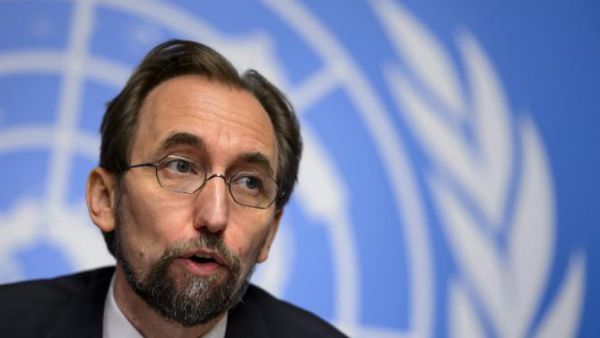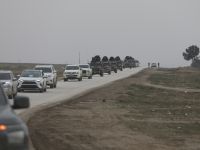The United Nations on Monday condemned the targeting of civilians in the Syrian civil war and warned that thousands of people may have died during sieges.
UN High Commissioner for Human Rights Zeid Ra'ad al-Hussein made the comments during the 31st session of the Human Rights Council in Geneva, Switzerland.
Hussein condemned airstrikes, barrel bombs and other explosives "used without regard for civilian life" that have struck neighborhoods, schools and marketplaces during the five-year Syrian civil war.
His comments come as a precarious cease-fire in Syria between the government of President Bashar al-Assad and a consolidated organization of rebel groups enters its third day and as desperately needed humanitarian aid arrives at besieged locations.
Hussein said the deliberate targeting of hospitals and medical units, such as attacks targeting hospitals operated by Doctors Without Borders, "deprive huge numbers of people, many already suffering the effects of intense bombardment, of their right to health, and endanger their right to life."
"Similarly, the deliberate starvation of people is unequivocally forbidden as a weapon of warfare," Hussein continues. "By extension, so are sieges, which deprive civilians of essential goods such as food. And yet over 450,000 people are currently trapped in besieged towns and villages in Syria -- and have been, in some cases, for years. Food, medicine and other desperately-needed humanitarian aid is repeatedly obstructed. Thousands risk starving to death."
The cease-fire between the government and main opposition appears to be holding despite reported violations. Syria has been blighted by a complex civil war in which Daesh, the Syrian government and multiple Syrian rebel groups fight for control of territory. More than 250,000 people have died and 11 million have been forced to flee their homes.
By Andrew V Pestano
Editor's note: This article has been edited from the source material








